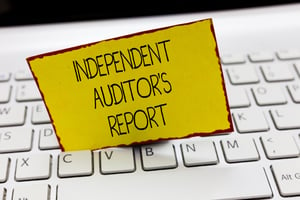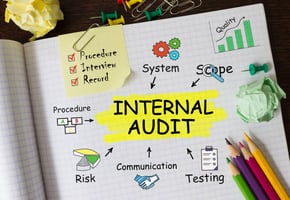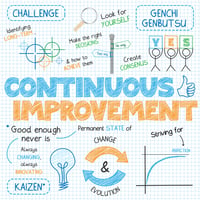Regular internal audits are a vital part of QMS maintenance and are in many cases a regulatory...
Internal Audit Dos and Don'ts
Internal audits are an essential part of quality management. Working with external auditors ensures you avoid conflicts of interest and have an independent perspective.
But how should your team interact with the auditor?
Below are some Dos and Don’ts regarding collaborating with an external auditor for an internal audit.
DO - Prepare the Auditor
Getting audited can be stressful. However, you can achieve smooth and successful audits with proper preparation and planning. The auditor should know what to expect during each interview, what needs to be reviewed with the coordinator, what topics should be covered, and the audit scope. Preparation should start several weeks before the actual audit.
Calls should be scheduled in advance of the audit to answer pertinent questions and lines of communication should remain open between your organization and the auditor.
DON'T - Flood Auditor with Documents
Provide the auditor with all records, documentation, and any additional information they may request. However, you should not overwhelm the auditor with documentation that is not relevant to the audit process. Only provide what will help the auditor better understand the company's processes and culture.
DO - Ask for an Audit Plan Early
An audit plan helps the both the auditee and the auditor map out the audit effectively. It defines the audit work that will be completed and encompasses the overall strategy and detailed approach of the audit’s nature, timing, and scope.
Audit plans should be issued two weeks or so before the audit occurs to know the focus areas under review.
DON'T - Accept General Templates
If an audit plan could be used for multiple industries, then the auditor probably didn't prepare using the pre-audit documents. With this in mind, ensure the template presented is customized to suit your operations.
General templates that do not reflect your organization's specific quality management system and processes may not add value to the audit process. A generalized template may also slow down an audit due to duplication and repetition. An ideal audit plan must demonstrate a good knowledge of the company.
DO - Stay with the Auditor
The auditee’s quality manager, or decision-maker in a similar role, should accompany the auditor throughout the audit process. Active involvement is crucial at each stage of the audit to identify issues or areas of particular concern that should be addressed. Staying with the auditor also facilitates clarification of issues and asking of relevant questions.
DON'T - Wait to Ask Questions
Even though the auditor may say that there is a "wrap up" at the end of the day, don't wait to ask any questions about their observations. Asking relevant questions allows you to seek immediate clarification on areas not well understood or covered. This ensures that no issue remains unresolved and that there are no surprises at the conclusion of the audit,
DO - Compare Notes
Take notes alongside the auditor during the audit process. During the closing meeting, the auditor may give findings but may have missed something that the auditee’s notes cover. Auditee notes may help determine if all audit objectives were met and if findings are substantiated.
DON'T - Dictate Notes
Auditors should be free to write what they want and how they want. Dictating notes to the auditor is tantamount to influencing the outcome of the audit. This nullifies the entire point of using an independent auditor.
DO - Challenge Invalid Non-conformity observations.
An audit seeks to verify that the practices being used conform to what is intended. However, there may be instances where the auditor makes invalid non-conformity observations. If you have reason to believe there is an invalid non-conformity, mention it. If the non-conformity is not a requirement, ask the auditor to make it a recommendation rather than noting a non-conformity.
Failure to challenge invalid non-conformities may result in difficulty identifying root causes and may result in inefficient allocation of resources.
DON'T - Confuse "Experience" with "Requirements"
Auditors may at times refer to “best practices” or “benchmark” approaches seen at other companies. This does not always justify a non-conformity. For instance, an auditor might ask to see a questionnaire to select suppliers since the auditor saw such questionnaires in previous engagements. However, if the questionnaires are not a requirement of the regulation or standard, you should ensure it is not recorded as a non-conformity.
DO - Disseminate Audit Conclusions throughout the Company
Every department manager should receive a copy of the audit report. This ensures that decision-makers have a clear picture of how the company is operating. An auditor's report points out inefficiencies and weaknesses in business that may need to be addressed similarly in other parts of the company.
To ensure that the business is conducting its affairs in full compliance, work with the department manager to create a CAPA for each nonconformity pointed out by the auditor. This will help to track corrective actions to completion.
DON'T - Accept a "Perfect Score"
Sometimes audits that result in no observations, recommendations, or non-conformities to report but this should not be interpreted as having a perfect system - an audit is just a collection of samples. Rotating auditors is a good way to challenge the quality management system with new perspectives. Every auditor looks at things differently. A thorough audit process always points out areas that need improvements. It also provides essential recommendations on the way forward.
Get Connected to an Experienced Auditor
Internal audits are much more than letting an auditor walk in and take a tour by themselves. To achieve accurate outcomes, an auditor should always be accompanied by a quality assurance manager or someone in a similar role. If you are looking for an auditor experienced in your industry, contact Medpoint.



